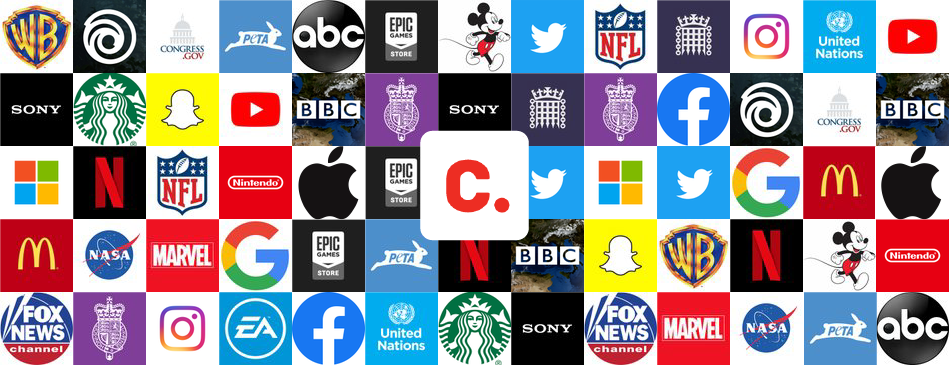Since its beginnings over a decade ago, Change.org has always been a platform where individuals and communities come together to hold truth to power. In many cases, Change.org petitions have earned hundreds of thousands of supporters en route to catalyzing major changes at large organizations, but some petitions with only a few hundred signatures have drawn responses and led to policy updates from multibillion-dollar corporations.
One key aspect of our full analysis of petition titles was the use of named entity recognition to learn about the specifics of how petition starters use the names of people, places, and organizations in titles. Somewhat surprisingly, we found that organizations, even more than prominent individuals, were named in titles.
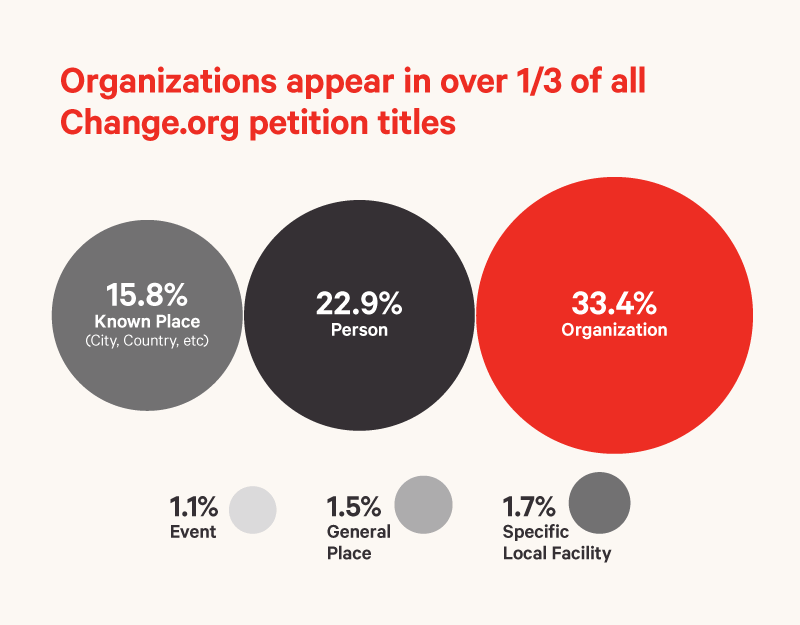
Of course, ‘organization’ is an extremely broad term, and named entity recognition works by checking text against a large dictionary of known organizations. On Change.org, the most common organizations receiving petitions are government entities—the U.S. Congress, U.K. Parliament, and the United Nations all ranked within the top 5 entities whose petitions received the most overall signatures (the two individuals in the top 5, Donald Trump and Theresa May, are discussed in our profile of Change.org’s most petitioned individuals).
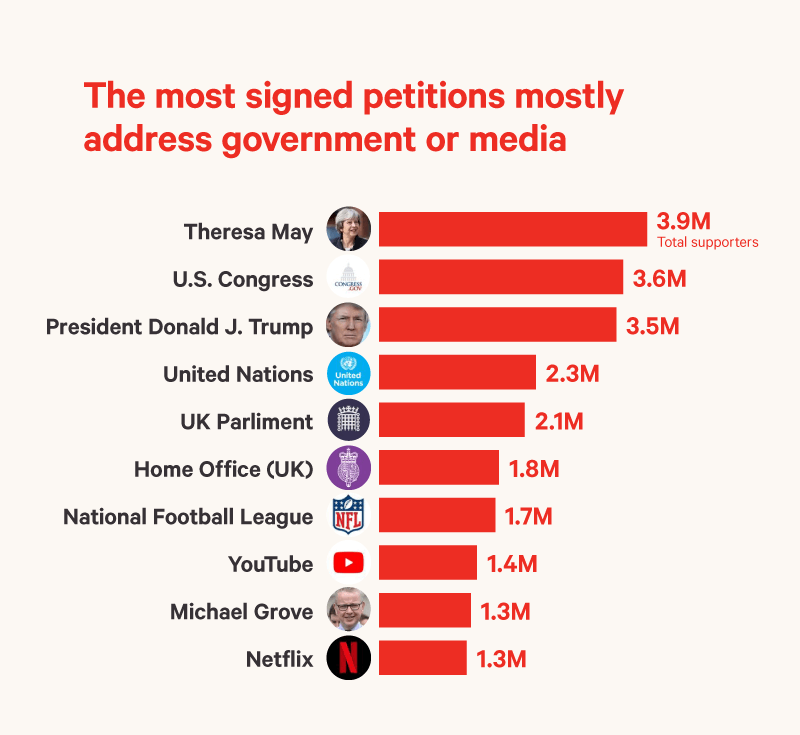
Demanding Change from Business and Technology Leaders
Change.org petition starters petitioned thousands of organizations between January 2018 and May 2019, covering issues from equality in the workplace to the particulars of goods and services offered. No private company in the world is more petitioned than Netflix, which appeared hundreds of times in petition titles during the studied period.
This was in no small part due to the fact that the streaming giant has revived so many fan favorite TV shows over the years, and petitions have been started to either revive or produce dozens of projects on the platform. Petition starters have reason to be encouraged, too—a highly publicized petition to save Lucifer garnered over 300,000 signatures and became part of a broader movement to save the show that eventually led directly to its pickup for a fourth season.
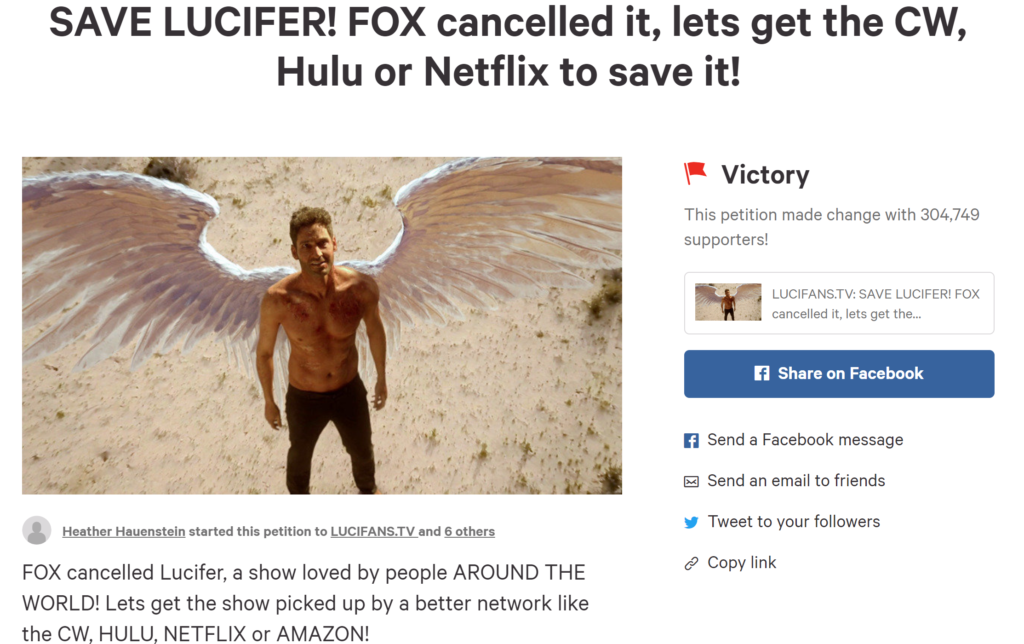
Several large U.S. tech firms appeared near the top of the list, with none receiving more petitions than Facebook. The company was plagued by scandals during most of the period studied, so it was no surprise to see them toward the top of the list. However, unlike many other large tech firms whose petitions were primarily about product features and user experience (for example, this million-signature-plus petition to Snapchat), the most widely-supported petitions to Facebook tended to center on security, privacy, or content hosted on the site.
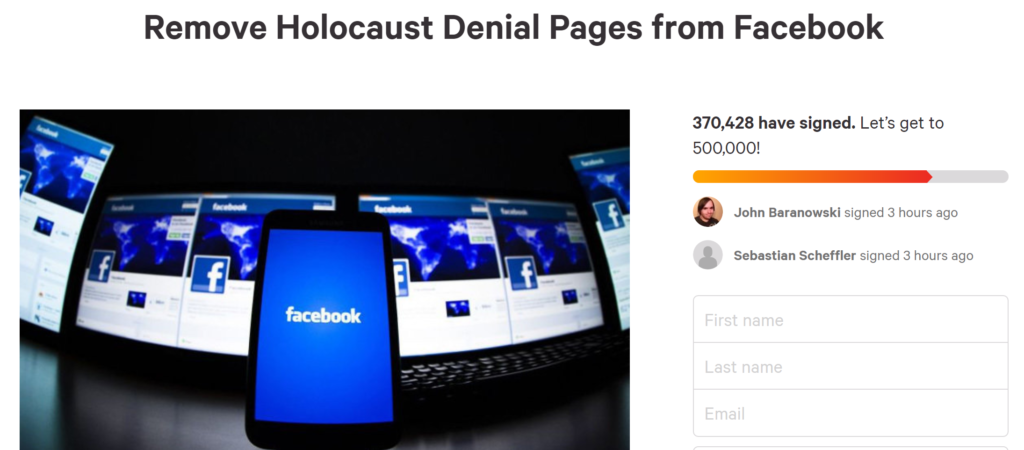
Examining the petition targets most frequently addressed on the site, it becomes clear that Change.org petition starters had particular focus on government, media/entertainment, and animal rights:
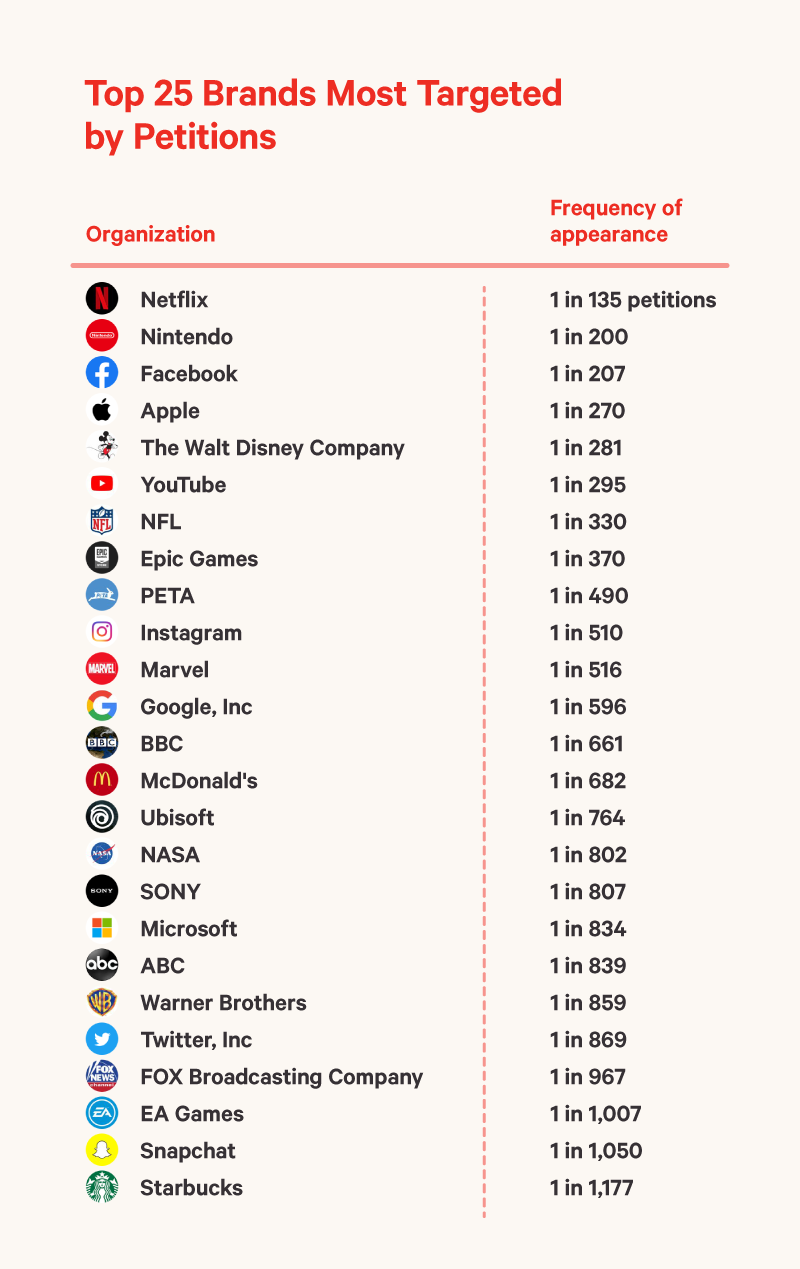
Perhaps the biggest takeaway from the list is that companies at the intersection of media and technology appear more frequently than any other type of organization. The list contains 5 social media companies (Facebook, Instagram, YouTube, Snapchat, and Twitter), 5 film studios (Netflix, Warner Brothers, Sony, Marvel, and The Walt Disney Company), 4 video game companies (Nintendo, Epic Games, Ubisoft, and EA Games), and 3 major news outlets (BBC, ABC, and FOX Broadcasting Company).
In terms of the so-called FAANG Companies—Facebook, Apple, Amazon, Netflix, and Google—4 of the five made the list. Noticeably absent is Amazon, which was petitioned less than its counterparts despite its own share of controversy during the studied time period.
Trends across the Change.org platform, both in our research and in previous work, show that some of its most passionate activism relates to animal rights, and this was apparent in the large number of petitions directed to People for the Ethical Treatment of Animals as well as fast food providers, who are frequently petitioned on issues related to sustainable food production and animal welfare.
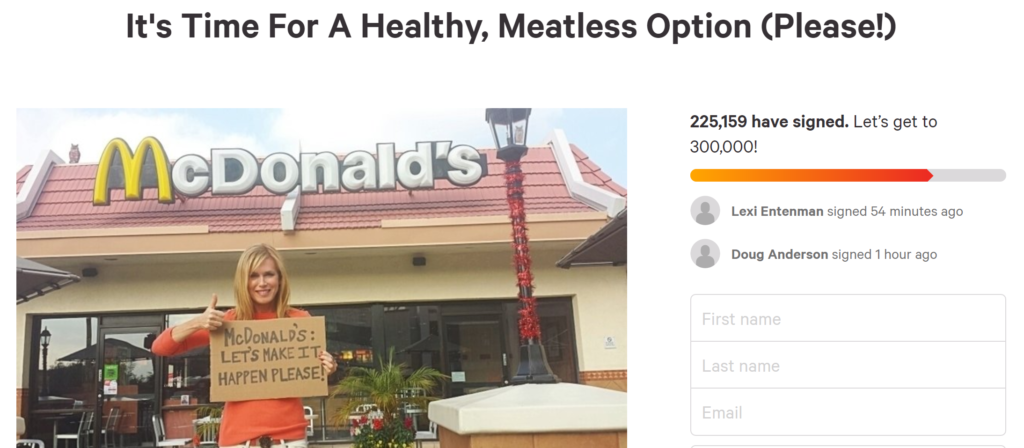
What does this mean for petition starters?
During the time period we studied, all Change.org petitions needed to be addressed to a ‘Decision Maker;’ that is, the person ‘who can make this change.’ Decision makers have historically been a major part of the petition creation process at Change.org—including a decision maker in a petition allows you to reach out directly to the person best suited to help you achieve your goal. It’s a more personal approach than simply naming a corporation.
That said, decision makers are often less well known than the organizations they represent. While there are many exceptions to this rule, in general, potential signers will be more aware of an organization than they are of the individuals who work there, and prominently displaying an organization’s name will certainly make your petition instantly recognizable when shared on social media.
We found substantial evidence that petitions to organizations are common—even more so than petitions to individuals—and countless stories of petition victories often involve petitions directed at entire organizations. Like all choices in crafting a petition, your ultimate choice depends on the story you want to tell, but in terms of achieving widespread visibility and instant recognition with a petition title, directly naming the organization you hope to influence should be a major consideration when you begin your petition creation journey.
After reading our report and making a decision on how to address your petition, you can start a petition on Change.org here.
Nick Allardice is the Chief Product Officer at Change.org. Twitter, LinkedIn.

